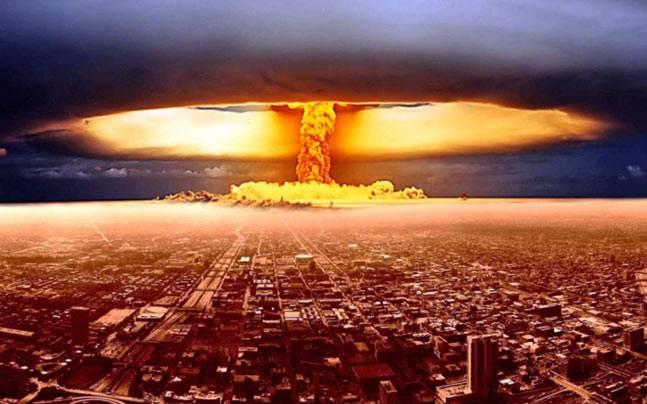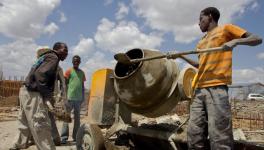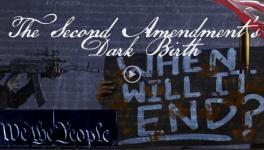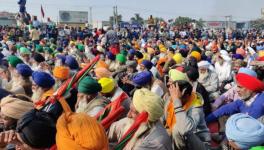Hydrogen Bomb Not a Strategic Game Changer, but Game Over in Korea

Image Courtesy: Simply Decoded
On September 3, North Korea tested a hydrogen bomb, with a yield estimated to be around 120 kilotons, 8 times the power of the Hiroshima bomb. This, combined with the recent ICBM tests that show North Korea can reach the western shores of the US with its missiles, is not just a game changer between the US and North Korea stand-off -- it is virtual game over. The US has failed in its attempts to stop North Korea's nuclear weapons and missile program and failed.
The only way forward is now to re-start talks between North Korea, the US and other countries. Continuous threats of annihilation by the US military leaders and Trump's tweets of fire and brimstone is not helping to move away from the nuclear brink.
The latest nuclear weapons test by North Korea is much more powerful than what it tested a year back. It is either a full fledged hydrogen bomb or a boosted fission device. In either case, North Korea's nuclear capability has taken a quantum leap. For those who might remember India's nuclear tests, there was a lot of doubt whether India's hydrogen bomb test was a boosted fission device or a hydrogen bomb. It matters little. In the end, what matters is its yield – and at 120 kilotons, the world will have to accept North Korea's entry into the nuclear club.
A day before the test, Kim Jong Un visited the Nuclear Weapons Institute. The pictures released by the North Korean state TV, shows pictures of a warhead that can be mounted on Hwasong-14, the North Korean ICBM. North Korea has shown with its tests in July and August its capability to reach the US cities with its missiles. With this test, it has now demonstrated a capability to miniaturise its warhead. The only question remaining, is whether it has developed the necessary heat shield to protect the warhead from being destroyed on re-entry. The US can scarcely gamble on North Korea not having a proven heat shield in an exchange with North Korea.
China and Russia have both argued that North Korea should stop its provocative acts of missile and nuclear weapons tests. But they have also asked the US not to engage in equally provocative military exercises like the one the US carried out recently near North Korea's borders with hundreds of thousands of troops. They have asked both sides – North Korea and the US and it allies – to step back and engage in talks. While the US presents North Korea as a “rogue state” with “mad” leader, the fact remains that it is the US that has engaged in invasions, regime changes, wars and military occupations over the last 70 years. Including the only use of nuclear weapons. Neither is there any history of a small nation attacking a militarily a far bigger one, and risking certain annihilation.
North Korea sees itself under threat of US and South Korean invasion. The frequent military exercises with live ammunition and mimicking invasion of the north on its border is a recurring irritant. The only agreement that exists between North Korea and the US, is a temporary truce, the 1953 armistice. The US has turned down any effort to reach a permanent peace with North Korea. And after Bush's declaration of Iraq, Iran and North Korea as the Axis of Evil, North Korea regards itself as a US target for regime change. With Saddam and Gaddafi, having given up their nuclear and chemical weapons, and subsequently suffered the consequences, it is unlikely that North Korea will give up either its nuclear weapons or its missile options.
Clearly, UN sanctions without any desire to talk to North Korea is not working. The US claims, which Trump has recently tweeted is that there is no point in negotiating with North Korea, as it does not keep its promises. As we have written in these columns, it is the US that has repeatedly reneged on its promises to North Korea. North Korea not only kept its side of the bargain, it allowed its nuclear reactors capable of producing significant amounts of plutonium to become junk It is these agreements starting with the 1994 Agreement that delayed North Korea's nuclear program by at least a decade.
Jeffrey Lewis, writing in 38North, a website on the Koreas, writes,
“The fundamental logic of the Agreed Framework was sound. North Korea had a small, unknown stockpile of plutonium in 1994. It was on the verge of having much, much more.
The United States successfully froze that stockpile—a freeze that lasted eight years...when the Bush Administration chose to “shatter” the Agreement...”
Can the US now walk back to the negotiating table and restart the process? Not just of missiles and nuclear weapons but of the whole gamut of issues. Including that of permanent peace in the Koreas. A nuclear war in the Koreas will take down not only North Korea but also South Korea and Japan. North Korea is clearly not blinking with Trump's bluff and bluster. The US has to not only to speak to China and Russia about North Korea but also listen to them. Something it still refuses to do.
Disclaimer: The views expressed here are the author's personal views, and do not necessarily represent the views of Newsclick.
Get the latest reports & analysis with people's perspective on Protests, movements & deep analytical videos, discussions of the current affairs in your Telegram app. Subscribe to NewsClick's Telegram channel & get Real-Time updates on stories, as they get published on our website.























